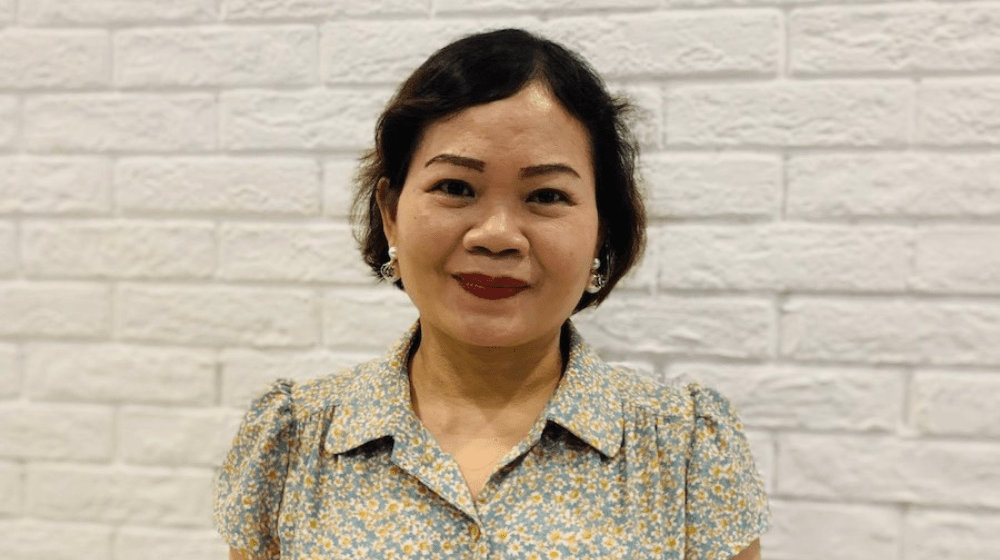“A 17-year-old girl had been sexually abused by her father repeatedly for two years prior to our interview. Embarrassed, she had suffered alone without daring to tell anyone. She was afraid her mother would be hurt or her family could be separated. She feared being looked down on by her neighbours and community, and alienation by her school friends. Her eyes burst into tears when she told me her story. This girl was my son’s age. She was too young to bear this pain alone for such a long time. I felt my heart aching, sad and sorry for her.”
As an enumerator for two studies measuring the prevalence of violence against women in Viet Nam - the first conducted in 2010, and the follow-up survey in 2019 - Ms. Vu Thi Xuan has interviewed many women and girls about their experiences of violence. She was often the first person to hear their heartbreaking stories. Now, years later, Ms. Xuan still remembers some of the people she interviewed, their stories living on inside her. Despite the serious nature of the abuse they faced, many didn’t even realise that what they had experienced is gender-based violence.
In Viet Nam, as in many countries the world over, gender-based violence is still hidden. Cultural and practical barriers make it difficult for women to speak out and seek help. And, women often endure prolonged violence for the sake of family harmony or in hopes that their husbands or other perpetrators will change.
This context made it especially difficult for survivors to feel comfortable opening up to survey enumerators about their experiences of violence - especially sexual violence. So how did Ms. Xuan encourage women and girls to disclose their most private, painful stories? And what could she do to help?
Equipped with skills from an intensive enumerators training for Viet Nam’s first-ever violence against women survey, Ms. Xuan and her colleagues identified safe public locations for interviews where private conversations were possible, such as health stations or community centres. The questions were designed to make respondents feel comfortable with the enumerators. For sensitive topics such as childhood sexual abuse, the respondents could privately respond using choices of a smiling face or a sad face on a tablet visible only to them.
For women and girls who disclosed experiencing violence , Ms. Xuan and her colleagues were equipped to support them with a list of free and locally available services and emergency hotlines at the end of the interview.
Ms. Xuan remembers her conversation with the girl whose father sexually abused her as if it was yesterday.
“She cried louder when we finished the interview. It was the first time she had been able to tell her hidden, painful story. She found herself relieved of a burden. When I gave her the list of free services and hotlines, she felt comforted that there are still people willing to listen and support her whenever needed. She did not want the conversation to end.”
It’s experiences like these that make Ms. Xuan appreciate her time as an enumerator for these historic surveys.
“I’m happy to have made a small contribution to support women and girls subjected to violence and for the opportunity to connect them with available services.”
In Viet Nam, 32 per cent of women - or roughly one out of three, corresponding to the global average - have experienced physical and/or sexual violence by an intimate partner in their lifetime. Half of these women told no one about it prior to the 2019 violence against women prevalence survey, and the vast majority - 90 per cent - did not seek help from formal service providers.
By bringing stories and data out into the open, the surveys a decade apart have been instrumental in shining a much-needed spotlight on women’s experience of gender-based violence in Viet Nam - uncovering that much remains to be done, prompting government officials, legislators and civil society stakeholders alike to work more closely together to address the scourge.
---
Viet Nam’s General Statistics Office (GSO) and Ministry of Labour Invalids and Social Affairs conducted the country’s second national prevalence survey on violence against women in 2019.
Technical support was provided by UNFPA Viet Nam and UNFPA Asia-Pacific Regional Office’s kNOwVAWdata Initiative.
The Australian Government Department of Foreign Affairs and Trade (DFAT) supported the national survey and the regional kNOwVAWdata Initiative.
Read this article to learn more about Viet Nam’s 2019 survey and how violence against women prevalence has changed in the last decade.
For more information on the kNOwVAWdata Initiative, see: asiapacific.unfpa.org/knowvawdata


